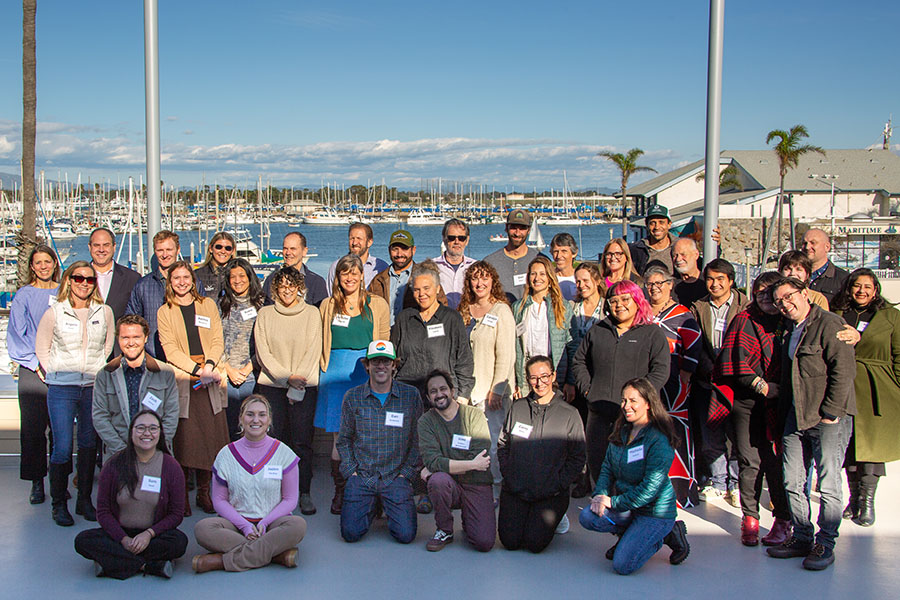 Feb. 19, 2024 - Federal, state and local policymakers walked away from a recent CSUCI
Coastal Access Summit with valuable data gathered over three years from CSUCI researchers
from different academic programs.
Feb. 19, 2024 - Federal, state and local policymakers walked away from a recent CSUCI
Coastal Access Summit with valuable data gathered over three years from CSUCI researchers
from different academic programs.
The day-long summit drew 45 participants who heard about the results of three years of research funded by a $500,000 grant from the state of California.
The title of the three-year study was “The People’s Beach” and the research centered on making sure beaches were accessible to all, especially considering how sea level rise is gradually swallowing the state’s beaches.
“When we put accessibility in the lens of sea level rise and you consider 60 percent of our beaches are under threat, we have to divvy up beach amenities and analyze how to preserve and best manage our beaches,” said Associate Professor of Environmental Science & Resource Management Kiki Patsch.
The research team came from many areas of study. Patsch and Associate Professor of ESRM Dan Reinemann came from CSUCI along with Assistant Professor of Communication Studies Jose Castro-Sotomayor.
Completing the research team are retired San Francisco State University Professor of Economics Phil King and Charles Lester, director of the Ocean and Coastal Policy Center at in the Marine Science Institute at UC Santa Barbara (UCSB).
“Because the intent of the project was really to deliver information that the state needs to make better decisions for the coast, one of the things we did was create an advisory group for the project,” Reinemann said. “We have coastal managers from state and local agencies and local non-profit agencies working on environmental justice and access writ large.”
Castro-Sotomayor researched the socioeconomic aspect of beach accessibility, surveying more than 1,000 beach visitors and conducting six focus groups of members of underserved communities to collect data on how often they visited the beach, and how accessible the beach was.
“Literacy and language played a part,” Castro-Sotomayor said. “For some, the beach is invisible because they cannot read the signs directing them to a beach. They talked about difficulty reserving a spot on the beach to park an RV for example, as reservations tend to be made digitally, and you have to have a credit card. Not everybody does, so maybe not everything should be online.
With better analysis on sea level rise, coastal erosion and people who love the beach, policymakers will now roll up their sleeves and work out a plan to make sure beaches in the region are equitable and accessible to all now and in the future.
Funding for this project was provided by the California State University Council on Ocean Affairs, Science & Technology (CSU COAST) and California Sea Grant through the CSU COAST State Science Information Needs Program.
